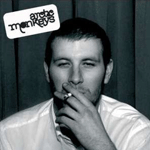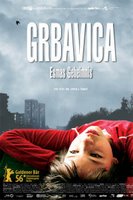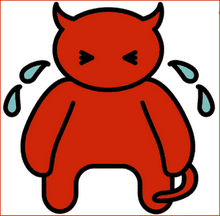 The Decemberists
The DecemberistsThe Crane Wife
[Chamber Pop / Indie]
Everyone's favourite Dickensian indie urchins return with a typically strong set of songs. Whilst all their staples (antiquated crime, exotic locales, wordy lyrics) remain in force, right from the opening they seem to be operating in a more epic, muscular mode than you may be used to. Opener The Crane Wife Part 3 may be chronologically out of order with parts 1 and 2 (found as a single track later on the record; a deceptively short-looking 10 tracks is actually 13 if we count the two three-parters on the album seperately) but it forms an appropriate opener with it's epic fairytale feel. A spin on an old Japanese tale, it's the story of a poor man rewarded for saving a bird with a bride; and then rebuked for working her hard out of greed.
But if The Crane Wife 3 is a good introduction, it's The Island which really opens the record out. The three part epic moves from the commanding, slightly funky Come and See to the bitter You Won't Feel The Drowning; "Go to sleep now, little ugly, / Go to sleep now, you little fool" with ease and style. Yankee Bayonet and O Valencia! feel more like the Decemberists we've been used to in the past, but neither have immediate appeal of something like 16 Military Wives. O Valencia! is good single fodder, but it doesn't quite have the bouncy drive or satiric immediacy necessary to really engage like Military Wives. It's only when we get to the forcefully rhythmic Perfect Crime #2 that the listener is reassured of this album's progression. The material is tried and true Decemberists pulp but the song's musical qualities are what set it apart from their back catalogue.
When The War Came is possibly the album's weakest song, but it's abrasive, slightly queasy sounds suit the lyrics, and it can be argued that it's inclusion was to the advantage of the album as a whole. Following it are Shankhill Butchers and Summersong, two very typically Decemberists songs, but offerings set in sharp contrast; from the menacing minimalism of Butchers to Summersong's breezy pop; "My girl, linen and curls / Lips parting like a flag all unfurled / She's grand, the bend of her hand / Digging deep into the sweep of the sand".
But the mark of how good an album is as a whole lies, for me, in it's finale. The Crane Wife delivers a one-two punch with the beginning parts of it's title song, a quite, introspective, beautiful song that most bands would be proud to have as a finale; it's here the wisdom of the ordering of the tracks becomes apparent. Not content to rest on this, the band pulls out a last ace with Sons and Daughters, a rousingly optimistic glob of pop honey that manages to make nonsensical lyrics like "We'll build our walls of aluminum / We'll fill our mouths with cinnamon" sound inspiring.
The Crane Wife is an unusually hard album to grade. Whilst it works extremley well as a coherent whole, a few of the tracks, whilst pleasing, seem like treading water for the band. The lack of a single as strong as 16 Military Wives is also somewhat of a dissappointment, but an album this epic and consistent can't, in the end, fail to impress. A strong offering then, but from a band that needs to evolve a little more from their past albums. 80








